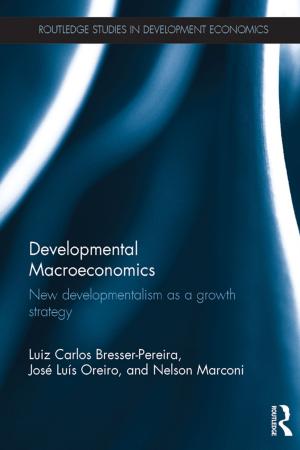| Author: | ISBN: | 9781351942768 | |
| Publisher: | Taylor and Francis | Publication: | May 15, 2017 |
| Imprint: | Routledge | Language: | English |
| Author: | |
| ISBN: | 9781351942768 |
| Publisher: | Taylor and Francis |
| Publication: | May 15, 2017 |
| Imprint: | Routledge |
| Language: | English |
Ever since the Shanghai convention in 1909, the threat posed to human well-being by drug abuse has led countries around the world to take action to deal with their drug problems. There are wide variations in the policies pursued, but most countries try to reduce both the supply of and the demand for drugs. Unfortunately, there is little research consensus on the respective merits of these two approaches or about the best ways to pursue them. Consequently, control and prevention policies are mostly driven by political considerations, economic realities and cultural expectations, though research has played an important part in formulating and evaluating treatments for drug addiction. This volume reviews studies on drug abuse prevention and treatment strategies under five main areas: 1. Reducing supply - strategies to control the flow of drugs from production to retail distribution; 2. Reducing demand - prevention of drug use at all stages of involvement and consumption levels; 3. Reducing harm - promoting situational risk reduction practices for regular users, addicts and recreational users; 4. Reducing addiction - drug treatment options for various groups in various settings; and 5. Drug policies and prescriptions - focused on debates about prohibition and legalization.
Ever since the Shanghai convention in 1909, the threat posed to human well-being by drug abuse has led countries around the world to take action to deal with their drug problems. There are wide variations in the policies pursued, but most countries try to reduce both the supply of and the demand for drugs. Unfortunately, there is little research consensus on the respective merits of these two approaches or about the best ways to pursue them. Consequently, control and prevention policies are mostly driven by political considerations, economic realities and cultural expectations, though research has played an important part in formulating and evaluating treatments for drug addiction. This volume reviews studies on drug abuse prevention and treatment strategies under five main areas: 1. Reducing supply - strategies to control the flow of drugs from production to retail distribution; 2. Reducing demand - prevention of drug use at all stages of involvement and consumption levels; 3. Reducing harm - promoting situational risk reduction practices for regular users, addicts and recreational users; 4. Reducing addiction - drug treatment options for various groups in various settings; and 5. Drug policies and prescriptions - focused on debates about prohibition and legalization.















